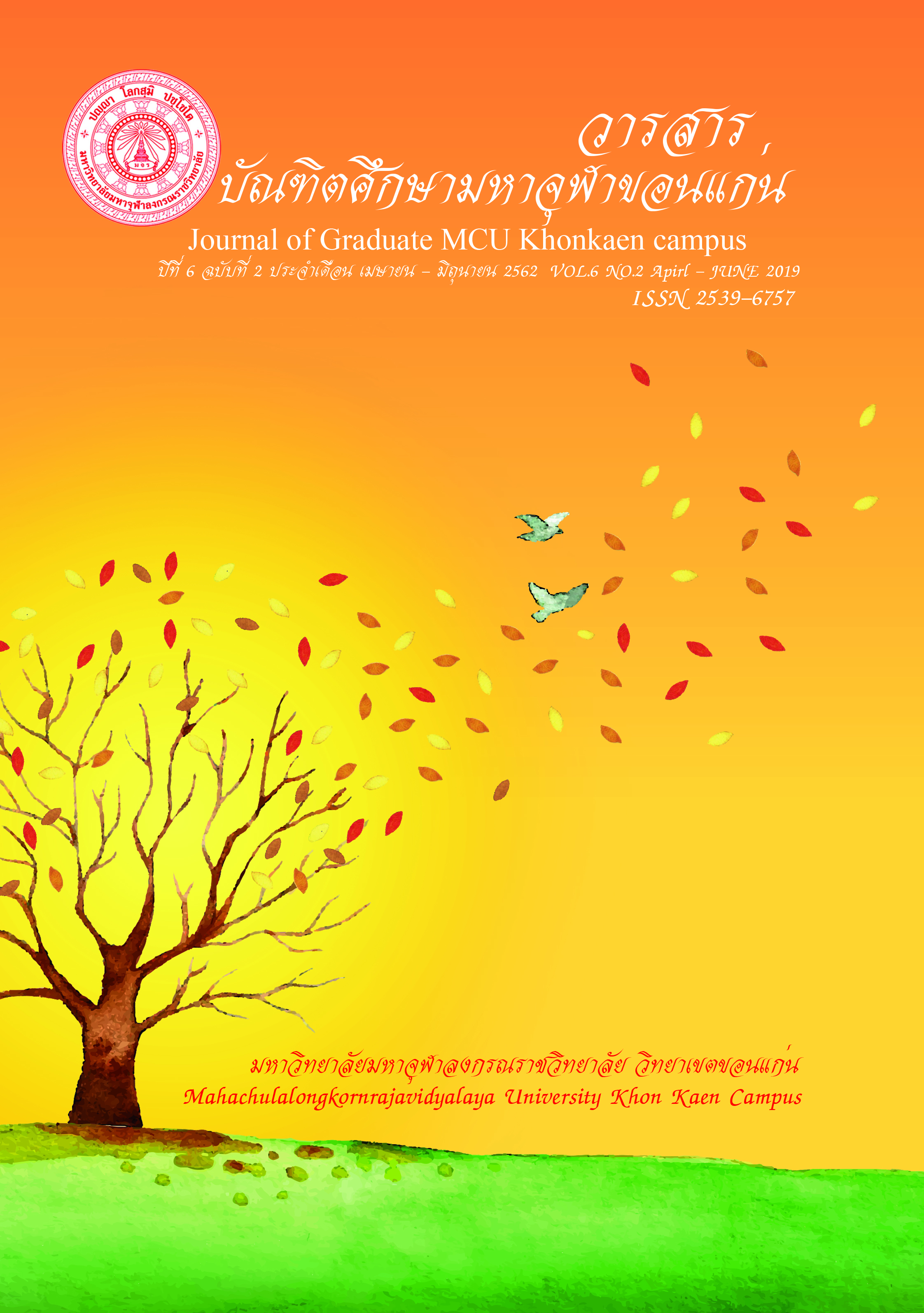Solving Household Economic Problems According to the Principles of Eight Preceptsand Sappurisadhamma of Banphou People Phralab District Khonkaen Province
Main Article Content
Abstract
The aims of this qualitative research were: 1) to study the condition of household economic problems of Ban Phou village, Phralap sub-district, KhonKaen; 2) to integrate the principles of eight precepts and sappurisadhamma to solve such problems of the village. This qualitative research has its tools as 1) in-depth interview form andthe data were collected by interviewing 30 key informantsand 2) participatory observationand analyzed by deductive-methoddescriptive analysis.
The research results were found that Ban Phou is a village with a large population living close to KhonKaen Municipality. The majority of the population is agricultural workers. Due to the conditions of the terrain, it causes 4 household economic problems for the population, namely: 1) inadequate revenue; 2) unbalanced expenses in living; 3) debt from borrowing and living according to modern society; 4) problems of saving money in daily life that has more expenses than income.
Integration of the principles of eightprecepts and sappurisadhamma in order to solve the economic problems of the villagers of Ban Phou villagers, Khon Kaen can be done in three levels starting with promoting community-driven organizations; the second level is to request the continuous support from monks to be leaders in training the principles of eight precepts and sappurisadhamma for the people of Ban Phou. The third level is to show the role of community leaders in every department by pointing out ways to solve problems, alleviate and promotepotentials through the Eight precepts (uposatha-sīla) andSappurisadhamma (Dhamma, qualities of a good man; virtues of a gentleman) in order for the villagers to have a pattern of living that promotes economic status at the same time. The results of this are: 1) more income 2) expenditure decreases with the pattern 3) awareness of debt disadvantage and 4) more savings and allocation.
Article Details
References
application to various economics fields. Amarin Printing: Bangkok.
Aphichai Phanthasen. (2010). The position of Buddhist economics and poverty
(suffering). Bangkok: Openbooks Publishing.
Chatmanee Klangsawad. (2009). Changes in financial behavior of people who
make household accounts Case studies in Ang Thong Subdistrict,
Muang District, Kamphaeng Phet Province. Research report.
Phitsanulok: Naresuan University.
Chaiwat Norrat. (2002). Sufficient Economy and Civil Society : The Resulting
Talking on Multibranch Between the National Institute. Bangkok:
Pharaphai Publishing.
Khamhaeng Visuddhangkoon. (2009). The Usefulness of Buddhism in
Enhancing the Economic Conditions of the Rural E-san
Households: A Case Study of Muang District, KhonKaen Province.
Humanities and Social Sciences, 34(1), 247-269.
Krichlert Samphantharak and Verachat Kilenthong. (2010). Database of
Level’s Household to Develop Economic and Social Knowledge.
Bangkok: Horkarnkarthai Publishing.
National Statistical Office. (2011). Household Socio-Economic Survey 2011.
Online. Retrieved January 2,2019.from:http://service.nso.go.th
/nso/nsopublish/themes/theme_2-7-3.html

